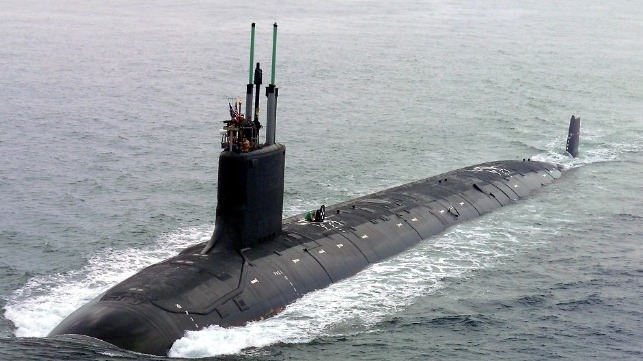
A U.S. Navy engineer and his wife have been arrested on charges of attempting to sell some of America’s most valuable nuclear secrets to a foreign government.
Jonathan Toebbe, an employee of the Department of the Navy, served as a nuclear engineer and was assigned to the Naval Nuclear Propulsion Program. He had access to so-called “Restricted Data,” a specific legal term for automatically-classified nuclear secrets.
On April 1, 2020, Toebbe allegedly sent a package to a foreign government containing a sample of restricted data about the reactor for the Virginia-class submarine, the U.S. Navy’s latest-generation attack sub program. The package contained an offer to sell additional information, along with detailed instructions for making contact via encrypted email.
Using undisclosed methods, the FBI received the package and set up a sting operation to catch Toebbe. An FBI agent began a correspondence with Toebbe, and over a period of several months, they allegedly negotiated an agreement on highly affordable terms. For less than the price of the average car, Toebbe allegedly agreed to sell some of America’s most valuable nuclear secrets to a foreign power – secrets that cost the Navy tens of billions of dollars and seven decades of R&D to refine.
On June 8, the FBI agent transferred $10,000 in cryptocurrency to Toebbe as a “good faith” advance payment. On June 26, Toebbe and his wife Diana traveled to a prearranged “dead drop” location in West Virginia. Together, they allegedly deposited half a peanut butter sandwich containing an SD card. The FBI agent retrieved the sandwich, extracted the SD card and sent Toebbe an additional $20,000 in cryptocurrency. In exchange, Toebbe allegedly sent back a decryption key for the contents of the SD card. After decrypting the card, the agent found that it contained restricted data related to submarine nuclear reactors.
The price for the next delivery went up slightly, though still below the six-figure mark. The agent made arrangements with Toebbe for a second SD card drop on August 28, this time at a location in eastern Virginia. A $70,000 payment allegedly purchased a decryption key, and once again the SD card allegedly contained restricted data on submarine systems. “Specifically, [a] U.S. Navy subject matter expert determined that the document contained schematic designs for the Virginia-class submarine,” prosecutors wrote in charging documents.
On the third scheduled drop, on October 9, the FBI swooped in and arrested the Toebbes. In total, Jonathan Toebbe allegedly sold the FBI several thousand pages of restricted data on submarine reactors. “The information was slowly and carefully collected over several years in the normal course of my job to avoid attracting attention and smuggled past security checkpoints a few pages at a time,” Toebbe allegedly wrote in his correspondence.
“The complaint charges a plot to transmit information relating to the design of our nuclear submarines to a foreign nation,” said Attorney General Merrick B. Garland. “The work of the FBI, Department of Justice prosecutors, the Naval Criminal Investigative Service and the Department of Energy was critical in thwarting the plot charged in the complaint and taking this first step in bringing the perpetrators to justice.”
SOURCE READ THE FULL ARTICLE
https://www.maritime-executive.com/article/u-s-navy-engineer-charged-with-selling-nuclear-sub-secrets